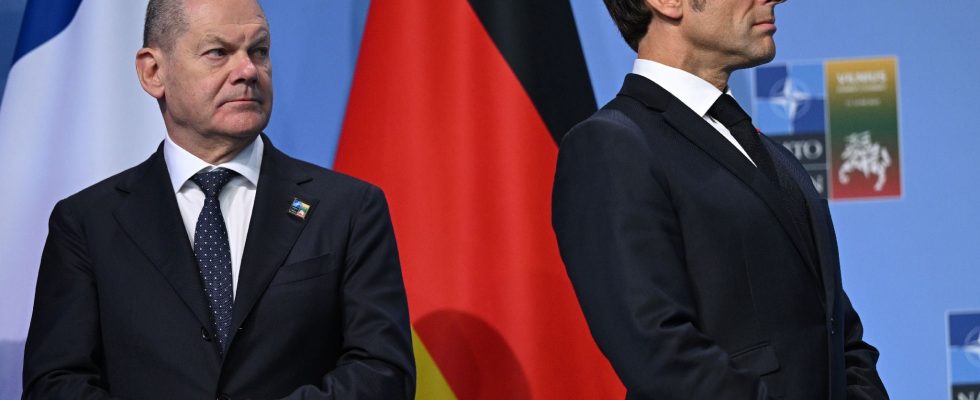Was it necessary to make a blunder or a non-deliberate provocation to obtain the collective jolt that Europe needs? The summit of the Weimar Triangle (France, Germany, Poland) organized without delay in Berlin on Friday March 15 is in any case the sign that at the most critical moment of the Ukrainian war, existential for Europe, the other urgency was to resolve the parallel battle between Emmanuel Macron and Olaf Scholz, whose disagreements and enmity had reached a worrying intensity. Polish Prime Minister Donald Tusk reconciled the two leaders who, despite their divergent approaches, share absolutely the same objective: that of the defeat of Russia, essential to the security of Europe.
We have not finished evaluating the consequences, both negative and positive, of Emmanuel Macron’s comments claiming not to exclude the sending of “ground troops” to Ukraine. The outcry caused by this sentence at the Elysée on February 26, including by the invited leaders who had just met precisely to send a message of unity and firmness to the Kremlin, was in no way voluntary. If the possibility of sending troops had been discussed in high places for several months, in the general staffs as between allied heads of state or government, it had been agreed between them to maintain vagueness and ambiguity strategic on this non-consensual and divisive issue in public opinion. At first, the effect was devastating. From the Secretary General of NATO to the British Prime Minister, from Washington to Stockholm, from Warsaw to Prague, everyone has sharply distanced themselves. The most scathing sentence came from Berlin: “There will be no ground troops, no soldiers in Ukraine who will be sent by European countries or other NATO states,” declared Olaf Scholz.
Helmets and sleeping bags
The tone has never been so high between a French president and a German chancellor. In addition to dropping his famous phrase about the troops on the ground, Emmanuel Macron deliberately – and unnecessarily – upset Olaf Scholz, by making fun of the government which, at the start of the war, was content to send “bags” to Ukraine. bedding and helmets. He even uttered, without attributing it, the word “cowardice”. Added to this is an infantile competition over their respective supports. The ranking of the authoritative Kiel Institute is merciless for France, which only comes 15th among the allies. Germany is ahead – by a long way – in the scale of its financial aid, but still refuses, unlike the second, to send its long-range missiles, the Taurus. Emmanuel Macron’s explicit barbs have further targeted Chancellor Scholz, whose character, so cold that he has acquired the nickname “Scholzomat”, adds to the post-war German social-democratic mentality configured by pacifism and extreme caution.
The blunder regarding ground troops initially isolated President Macron. Through his pusillanimity, it is Chancellor Scholz who gradually finds himself at odds and begins to prove French hubris right, once the disastrous political and diplomatic cacophony has passed. The German Parliament may have rejected a new motion from the CDU-CSU opposition bloc asking the government to send Taurus missiles to Ukraine, but the chancellor may have benefited from the solidarity of the ministers of his tripartite coalition (SPD, Greens). , FDP), voices are being raised to criticize him, including in these parties. Friedrich Merz, leader of the CDU and possible future chancellor, violently accused Scholz for his comments made in Paris. From Adenauer to Merkel, he continued, “no chancellor would have behaved so lamentably.”
Polish support
Emmanuel Macron is now supported by Poland, the Baltic countries and the Czech Republic, who welcome the mobilizing force of his message. According to Radek Sikorski, Polish Minister of Foreign Affairs, “Paris has changed the paradigm. It is now Putin who fears our decisions, and not the other way around.” The growing weight of Eastern countries in the European balance of power, combined with the consensus, recalled in Berlin by the Franco-German-Polish trio, that “Russia must not win this war”, should end up forcing Olaf Scholz to give in on his Taurus… and Emmanuel Macron to learn tact.
* Marion Van Renterghem is a senior reporter, winner of the Albert-Londres prize and author of Nord Stream Trap (The arenas)
.
